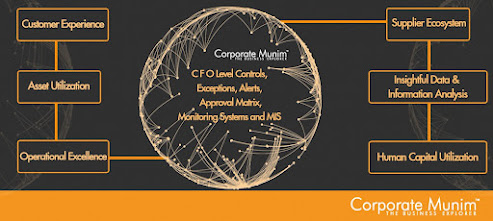What kind of changes required for the GST Ready ERP!
After the Demonetization, the GST has created the hype in all the business organizations, whether they are running their business on small scale or they are the giant firms. While the common men are hoping for the best, the business owners have no need to be confused.
The Goods and Services Tax will be in the practice from the 1st July 2017. The giant enterprises of the country have already started updating their Enterprise Resource Planning (ERP) systems.
The key players of the ERP providers such as Oracle, SAP etc. have already confirmed that they are coming up with new GST compliance needs.
The migration of the data is a crucial task that has to be done carefully. So, it becomes necessary for the expert to examine the impact of GST on ERP systems carefully.
Here are some of the points that are going to affected by the implementation of GST in ERP Systems.
Accounts:
The account codes have to be prepared separately for the Value Added Tax (VAT) and Services Tax related transactions by the goods sellers and the services providers.
Once the GST is in the system, these account codes are going to be combined. The point where one has to be most careful is at the time of carrying forward the closing balance.
This will be the significant transaction of current account codes to the new account codes.
Data Information:
The GST comes with the new rules for the tax charges. The important thing which is included in the GST is the location of the supplied products and services.
The time of transaction will also matter. The tax will be applied on the various transactions and the amount of the tax will be decided on these parameters.
By taking all these factors into the account the ERP System has to be capable of providing solution by revisiting master data like billing, addresses, information of Warehouse, Inventory etc.
Engine with tax rules and regulations:
Majority of the ERP Systems have a different Tax Rule Engine. You can call it a main source of all the logical data inside the system.
This data includes tax jurisdiction and tax compliance, tax charge rates, etc. So, it may require constructing the tax engine for the GST from the very basic.
So, what we can conclude is that the process of making such changes to make the system GST ready will not be that easy. This is one of the most important things that all the organizations need to focus on. The process making the change should be started as soon as possible.
There is no need to have any doubts as the GST is surely going to bring the clarity in the business and in long run it will be beneficial to both organizations and the consumers.
The initial period will definitely be tough as everyone will still in the adopting process but within few months it will all going to be settled in a flawless operation.
For more details:
Email us at: sales@corporatemunim.com
Visit us at: http://www.corporatemunim.com




Comments
Post a Comment